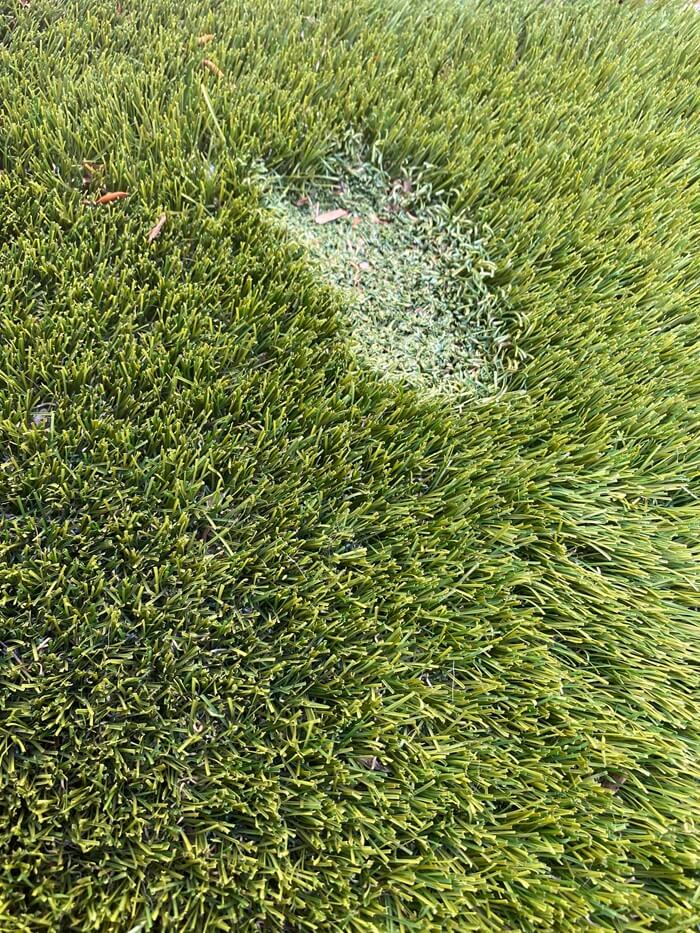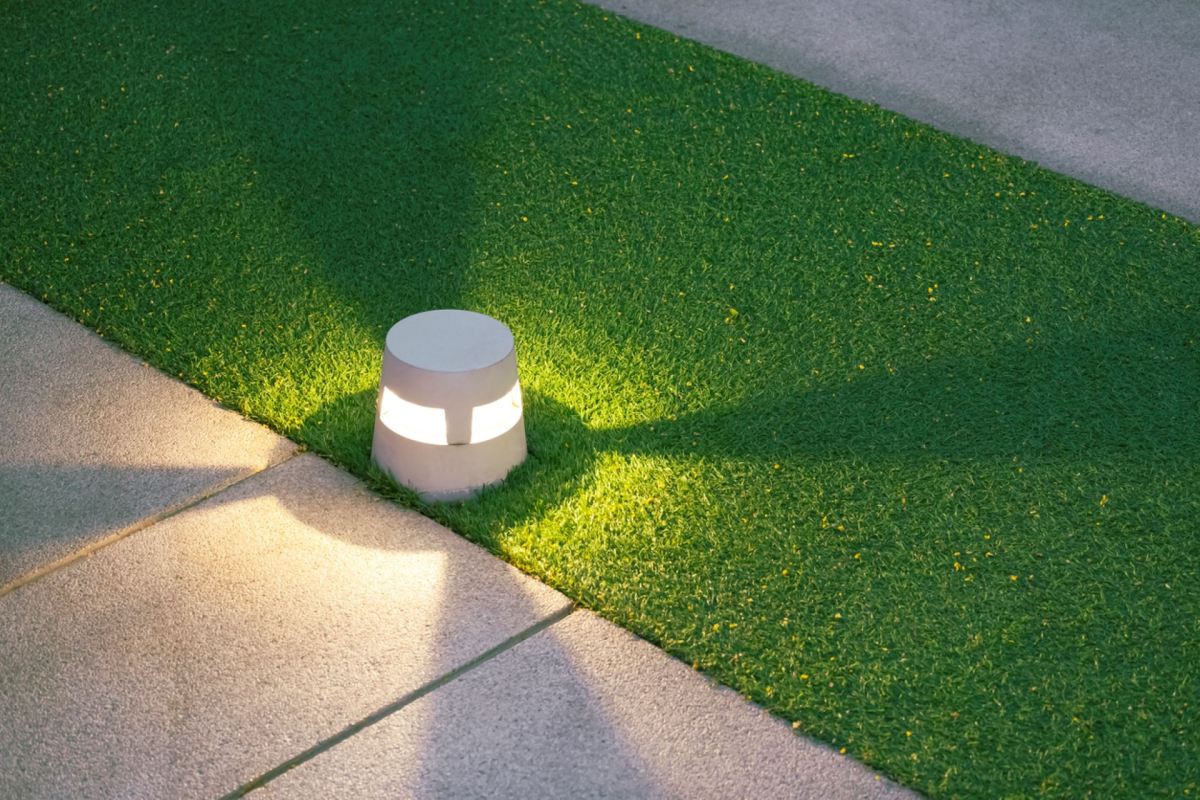In the quest for the perfect, maintenance-free lawn, some homeowners are turning to artificial turf as a solution.
A Redditor's recent post has raised questions about the practicality and environmental impact of these artificial alternatives. The photo — which has garnered mixed reactions — shows a patch of fake grass that has melted, illustrating the unforeseen consequences of choosing artificial over natural.

Artificial lawns have become common in drought-prone areas, where traditional grass struggles and water conservation is key. They promise a hassle-free solution to the demands of lawn maintenance, but at what cost?
The environmental impact of these plastic substitutes is significant. They may conserve water, but they also produce a carbon footprint during manufacturing, do not support local ecosystems, and raise concerns over their long-term disposal.
There's a growing chorus advocating for smarter, more sustainable choices. Options such as native plant gardens, clover, buffalo grass, and xeriscaping save water and create a thriving habitat for local wildlife. Even a partial lawn replacement with these alternatives can offer significant benefits.
The original poster explained their choice with the high water demands of real grass, stating, "Good play spot for kids, but it gets hot!"
"Not in Canada. You put this in and you're gonna be mocked horrendously," pointed out a user.
Yet another offered a creative fix to transform the damaged patch into a miniature Zen garden.
Amidst the debate, a curious user expressed bewilderment, asking, "Artificial lawn? How big is it and why?!" highlighting the novelty and potential impracticality of such a choice in some regions where traditional grass lawns are more common.
There's a consensus among users that while artificial lawns may seem convenient, the best solution lies in embracing the beauty and practicality of natural, low-impact lawn alternatives, and there's plenty of guidance out there if and when you're ready to get started.
Join our free newsletter for easy tips to save more, waste less, and help yourself while helping the planet.









